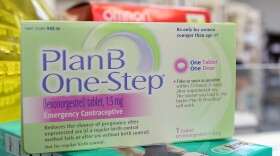-
Women who took a probiotic commonly found in yogurts daily while on a diet regimen lost significantly more weight and fat than their counterparts who received a placebo. The findings offer interesting hints about how probiotics might be interacting with the tiny microbes that live in our guts.
-
Expectant moms are eating for two, but that isn't a license to indulge. A solid body of research suggests that what happens in utero can set the stage for obesity. And a new study in mice suggests one way that poor maternal diet might play a role: by rewiring a part of the brain that regulates appetite.
-
The latest evidence that artificially sweetened drinks may be making us hungrier? Heavier-set people who choose diet beverages are making up the calorie gap at meals and through snacks — especially sweet ones, researchers report.
-
European drug regulators are warning that the emergency contraceptive called Plan B does not work in women who weigh 176 pounds or more. The warning follows a September study showing an increased number of pregnancies in women who had taken Plan B.
-
Chefs are the masterminds behind restaurants that enable and celebrate indulgence and gluttony. So when they do weight loss challenges, the messages are mixed.
-
Surgery sounds like a quick cure for sleep apnea, but a review of the evidence by doctors found the operations can be risky and disappointing for many people. Masks and pumps that keep airways open at night are effective. And the equipment is more comfortable than it used to be.
-
After a decade of pressure from schools, parents and public health officials, teenagers do seem to be doing a wee bit better when it comes to eating fruits and vegetables and cutting back on sugary drinks. But they've got a long way to go to be considered healthy eaters.
-
If obesity were a disease, would you be more likely to seek medical help because insurance would pay for treatment? Or would you feel stigmatized and just give up? That's the debate surrounding increased efforts to classify obesity as a disease.
-
There's a mountain of myths and assumptions about what makes us fat. One researcher is interested in understanding where these ideas come from and why scientists continue to recycle them. In a new study, he homes in on the presumption that skipping breakfast has a direct effect on obesity.
-
Lean people tend to have many more kinds of intestinal bacteria than obese people. Having too few species, regardless of your weight, appears to increase the risk for Type 2 diabetes, heart disease and cancer.

Play Live Radio
Next Up:
0:00
0:00
Available On Air Stations










